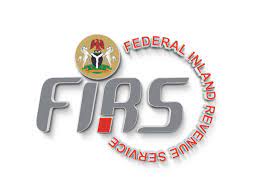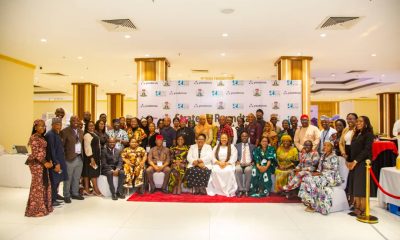BUSINESS
Tax Harmonization and Prospects for Nigerian Economy

By Kelechi Okoronkwo
To harmonize means to produce a pleasing combination; the way it happens in music production. Different sounds and notes are blended to produce harmony; and that is when a musical piece is pleasing. For taxation to be pleasing, there is need to harmonise the tax system.
The above analogy was the opening note of Mrs. Ifueko Omoigui Okauru, a former Executive Chairman of the Federal Inland Revenue Service (FIRS) as she moderated a panel discussion on the theme, Tax Harmonisation for Enhanced Revenue Generation during the second National Tax Dialogue at the Presidential Villa, Abuja recently.The panel discussion threw the reality on our faces—despite the level of one’s optimism, the fact remains that taxation in Nigeria is not pleasing, currently.
A single country which has 774 Local Government tax committees, 38 tax authorities and multiple tax laws is far from having a pleasing tax system. The good news is that the Second National Tax Dialogue, hosted by the Federal Inland Revenue Service, began leading on a national scale, discussions with critical stakeholders at various levels to ensure that soon, Nigeria’s tax system would be properly harmonised and ultimately become pleasing.The FIRS used the huge platform provided by the tax dialogue held on March 29, 2022 to draw attention to the need for tax harmonisation in Nigeria. It is also gratifying to note that key stakeholders at the event were in tune with the reality and pointed the way forward for tax harmonization in Nigeria.
President Muhammadu Buhari, who declared the dialogue open noted that Nigeria’s current tax system is characterised by fragmented administration, and multiple (and sometimes, overlapping) taxes, saying that most tax-efficient nations, tax administrative processes and practices are harmonised within a single system. He stated that one key deliverable of this year’s tax dialogue is to promote synergy in tax administration among the different tiers of government.
Hear him: “Harmonising taxpayer identification across the country is a good start; but we must do more to promote ease of doing business (including ease of tax compliance) in Nigeria. On our part, we have started by clarifying in the 2021 Finance Act that FIRS is the sole authority to administer tax for the Federal Government. This clarification became necessary in order to avoid taxpayers being burdened with multiple tax compliance obligations towards different agencies of the same government. Multiplicity of tax administration is as undesirable as multiplicity of taxes; it creates uncertainty and instability; and above all, it is inefficient”.
Making reference to the 2021 Revenue Statistics in Africa, a report by the Organisation for Economic Cooperation and Development (OECD), President Buhari noted that the average ratio of Tax-to-GDP of 30 selected African countries in 2019 was 16.6% while Nigeria recorded a mere 6.0%.
“It is obvious that much needs to be done in the area of tax revenue mobilisation. It is my expectation that the discussions at this 2022 National Tax Dialogue will be focused on what we must do to maximise legitimate revenue collection and massively improve the Tax-to-GDP ratio. We all know that good intentions are not enough as they simply cannot pay for infrastructure, security or social amenities. We must therefore improve tax revenue without necessarily raising new taxes. Revenue from commodities, including crude oil, are too volatile and unreliable. Therefore, I pledge government’s support for any viable initiative for improving tax revenue that should emanate from this dialogue”, the President said.
The Minister of Finance, Budget and National Planning noted that for the Federal Government to achieve its tax objectives it needs to rethink the current tax system. “We must rethink the current fragmented tax system and harmonise same. The tax policy, legislation and administrative practices at all levels must function as one indivisible whole. For example, a harmonised taxpayer registration will ensure that no taxpayer can hide from the relevant tax authority. We have observed that countries having lower economy and fewer tax base but streamlined tax administration has fared much better than Nigeria in terms of tax revenue collection; and ratio of tax-to-GDP. The goal for this year’s National Tax Dialogue is, therefore, to kick-start the discussion for the harmonisation of the fragmented tax systems into a coherent whole for improved tax revenue collection for all the governments in the Federation”, she said.
For the Executive Chairman of FIRS, Muhammad Nami, harmonisation of the Nigeria’s tax system is long overdue. He noted that fragmented tax system provided loopholes in the system, causing the country to lose trillions of tax revenue. “This discussion is imperative in view of the fact that despite our 38 tax authorities, several tax laws and numerous taxes or levies, majority of the taxpaying public still remain outside the tax net. The tax-dodgers found it convenient to meander among the competing revenue agencies escaping their tax obligations.
The result is suboptimal revenue generation at all tiers of government. It is our expectation that this second edition of the Tax Dialogue will achieve a lot more for tax administration in Nigeria. We thank the President for his continued support towards making taxation the pivot of development and economic growth in Nigeria. We equally thank the Honourable Minister of Finance, Budget and National Planning, Mrs. Zainab Shamsuna Ahmed and her team, the legislators, ministries, departments and agencies of government, who have been of great support to the Service”, Nami said.
Other distinguished speakers at the dialogue who threw weight behind harmonisation of Nigeria’s tax system included the Minister of State, Finance, Budget and National Planning, Prince Clement Agba, the Governor, Central Bank of Nigeria (CBN), Godwin Emefiele and the Ooni of Ife, Oba Adeyeye Enitan Ogunwusi.
Other knowledgeable personalities who led the discussion from the panel were a member of FIRS Board, Mrs. Adetola Aigbangbe, PwC Africa Tax leader and thematic lead, National Economic Summit Group Taxation and Public Finance Policy Commission, Taiwo Oyedele, Commissioner for Finance and Coordinating Economy, Imo State, Dr. (Mrs) Doris Uzoka-Anite, the Executive Chairman, Kaduna State Internal Revenue Service, Dr. Zaid Abubarkar and the FIRS Group Lead, Special Tax Operations Group, Matthew Gbonjubola.
The success of the first National Tax Dialogue in 2021 on the theme, Taxation in a Post-COVID Economy, which highlighted the importance of tax automation in Nigeria, brought about massive improvement in automation in Nigeria’s tax system. The result was evident on the revenue performance of the FIRS in 2021. Testifying to this, Nami said: “2021 was a year that the whole world continued to battle a devastating global pandemic which affected economic growth and disrupted business; yet, the FIRS was able to record an unprecedented feat in tax revenue generation. The Service surpassed its target and collected N6.4 trillion, the highest collection ever in the history of the FIRS. This feat was largely made possible by the cooperation of all stakeholders and use of technology which anchored our operations. Our tax system can do much more provided policies, laws, administrative processes and practices are harmonised to function as one”, he said.
The FIRS boss, recalled that FIRS alone contributed 59.45 percent of revenues shared among the three tiers of government by the Federation Accounts Allocation Committee (FAAC) in March, 2022.
“Permit me to quickly illustrate this with statistics from March 2022 FAAC meeting: Total revenue from all revenue agencies stood at N803.072 billion. Of that amount, tax revenue contributed by FIRS alone stood at N513.522 billion (63.94%); Non-tax revenue (from all other agencies) stood at N289.55 billion (36.06%). Mr. President may note that average tax or FIRS contribution to FAAC in 2021 was 59.45%. Mr President, this trend is set to continue for some time to come. As such, all hands must be on deck to support the tax system and make it function efficiently”, Nami said.
The success of the second National Tax Dialogue signals an era of tax harmonisation in Nigeria; an era with promises of economic prosperity for Nigeria. The FIRS hopes to meet and possibly surpass its N10.1trilion revenue target by the end of 2022.
Okoronkwo is a technical staff to the FIRS Executive Chairman.
BUSINESS
Electricity Supply Better off before Privatization – Consumers

Torough David, Abuja
Many electricity consumers in the Federal Capital Territory (FCT), said that electricity was more regular when it was being managed by the Federal Government.
The consumers, who reside in Kubwa, Kuje, Lugbe and Gwagwalada spoke in Abuja on Wednesday.
They said that the privatisation of the power sector was a good idea, but added that it was not working as they enjoyed more hours of supply when it was managed by Power Holding Company of Nigeria, (PHCN).
Privatization of the sector in November 2013, was an initiative of the Federal Government to transfer ownership and management of power assets to private entities.
The move was to improve efficiency, attract more investments, and enhance overall electricity supply.
Eleven Electricity Distribution Companies (DisCos) and six Generation Companies (GenCos) were formed after the sector was privatised.
However, the transmission arm of the sector was retained by the Federal Government.
The consumers said that electricity was more regular when it was managed by the government before privatisation of the sector.
Benjamin Okorie, a Civil Servant residing in Kubwa said that his area does not enjoy power supply for six hours in a day.
Okorie said that when PHCN was managing the power industry before the unbundling of the sector, it was stable and regular.
“I thought the unbundling of the sector into generation, transmission and distribution was to improve power supply.
“But from what we are experiencing now, it is getting worse by the day and we are paying more for electricity,’’ he said.
Maria Manza, a businesswoman also residing in Kubwa said that power supply was epileptic in her area.
Manza said that the area had been experiencing low shedding of power for more than three months, adding that some days they don’t even get supply.
Jonathan Onoja, resident in Lugbe, Federal Housing said that power supply was not regular in his area, adding that they hardly enjoy up to eight hours supply in a day.
According to him, with the privatisation of the power industry into three segments, I thought electricity will improve.
“With the privatisation of the power sector, I thought government was doing consumers a huge favour but to my greatest surprise electricity has not improved,’’ he said.
Julius Omogiafor, a businessman residing in Gwagwalada said that electricity was better off under government management.
Omogiafor said that when PHCN was in charge of power, it was more regular than when it is now managed by three bodies.
| ReplyReply allForwardAdd reaction |
BUSINESS
Small Business Owners Lament High Cost of Doing Business

Some business owners in the Federal capital Territory (FCT), have expressed concern over the high cost of doing business presently.
According to them, they are also experiencing low patronage as many residents can no longer pay for goods and services like before.
The business owners said on Wednesday in Abuja, that the cost of doing business was making life extremely difficult for them.
They said increased transportation, cost of living, inflation, and weakened purchasing power were some of the challenges affecting their businesses.
At the Apo Fish Market, Agnes Nwafor, a foodstuff dealer, said the current economic situation had dampened the usual weekend buzz.
“People who usually come to my shop to do bulk purchases no longer do that anymore. People now buy goods per time depending on their needs.
”So many others who come around enquire about the prices of the items and end up not picking anything,” she said.
Sani Abdul, a vegetable seller at the Apo market said he had cultivated the attitude of selling almost below his cost price just to turn-over and attract more customers.
He lamented that most of his customers now purchased things on credit paying up in two or three installments depending on the amount.
”With the low influx of customers to the market today, one will think that this is not even weekend.
“Some of my co-traders in the market sell a dust bin basket of tomatoes for between N10,000 and N12,000 but I sell for N9,500, just to attract customers.
“Most customers who come to the shop either want the price of the items slashed or want to buy the product on credit and I do not blame them,” he said.
He urged the government to come to the aid of citizens and find a lasting solution to the increasing cost of doing business in the country.
Ekaite Obong, who runs a restaurant at the Gudu market area, also decried high cost of doing business and poor sales.
Obong said:” it seems like the sales keep dropping every day, every week and every month. We are not making sales anymore due to high cost of products.
”Purchasing some food items now is like acquiring gold. Even items which the price ordinarily is supposed to decrease due to its season of cultivation have not declined.
“Thus, making the cost of food high, because we have infused a little profit to our sales. So I do not blame the customers who don’t turn out in mass at all.”
Obong urged the government to tackle inflation and strengthen the naira to reduce the cost of imported goods.
“We also need policies that help local farmers and producers too. If food items are affordable, cost of food will reduce and I am sure we will get more patronage,” she said.
Similarly, Chinedu Umeh, who runs a fabric store said the situation in the country had affected both his wholesale and retail business.
“The economy is biting hard, cost of transportation is killing our businesses. The government really needs to look into this area and find a lasting solution,” he said.
Umeh suggested tax relief for small businesses and better access to credit financing to help cushion the impact of reduced sales.
“Small businesses are the engine of the economy, but we are sinking. Government must listen to us, and come to our aid,” he said.
Owoicho Ameh, who owns a farm along airport road, also decried the high cost of doing business and low sales.
Ameh said: “it is no longer business as usual for us these days as the cost of chicken feed, electricity and even transport is challenging our business.
“We struggle with these factors even with our little resources, yet, at the point of sale, customers are either not willing or able to buy.
“This is because, when we factor in our cost of production, it leads to increased cost of the birds, making many customers not able to afford it.”
Ameh said on several occasions, he sold his birds at giveaway prices, just to make sales and get funds to take care of family responsibilities.
He lamented that if he continued in that manner, he may likely go out of business in the nearest future and become jobless.
“The government sincerely needs to take urgent steps to improve the economic climate, improve infrastructure and boost the people’s confidence.
“If this is not given immediate attention, the rate of suicides is bound to increase in the country and the number of jobless citizens will increase,” Ameh said.
BUSINESS
FG Inaugurates CNG Buses to Boost Staff Welfare

The Federal Government has reiterated its commitment to institutional performance and staff welfare with the inauguration of Compressed Natural Gas (CNG) buses at the Federal Ministry of Finance in Abuja
This was contained in a statement by the Director, Information and Public Relations of the ministry, Mohammed Manga.
Meanwhile, the Minister of Finance and Coordinating Minister of the Economy, Wale Edun, while inaugurating the buses, announced the reintroduction of essential provisions for the staff.
Edun described the move as part of a broader push to energise the ministry’s workforce and improve operational efficiency.
He said that the ministry’s internal strength was vital to delivering Nigeria’s broader economic reform agenda.
“This ministry is the engine room of national transformation and that engine must be well-fuelled,’’ he said.
He said that the buses were acquired under the presidential initiative on CNG, which intends to ease staff transportation while advancing the country’s shift to cleaner, cheaper energy sources.
The minister said that the initiative aligned with the ministry’s values of fiscal prudence, transparency and environmental responsibility.
Edun underscored the critical role of staff welfare in delivering Nigeria’s economic reform agenda.
He announced the revival of monthly welfare provisions to staff, a practical gesture aimed at fostering morale and stability as the ministry leads the charge on macroeconomic reform.
The Permanent Secretary of the Ministry, Lydia Jafiya, urged the staff to remain committed, disciplined and professional as the ministry continues to steer the country through a period of economic transition.
“As the country pursues tough but necessary policy shifts ranging from treasury digitalisation to market stabilisation, the ministry’s internal unity and external credibility remain pivotal to achieving inclusive growth and restoring investor confidence,” she said.
Jafiya also commended the minister’s leadership and hard work.
The Chairman of the Presidential Initiative on CNG, Ismaeel Ahmed, reiterated the programme’s mission to mainstream cleaner transport across government institutions and stimulate local industrial value chains.
| ReplyReply allForwardAdd reaction |




















